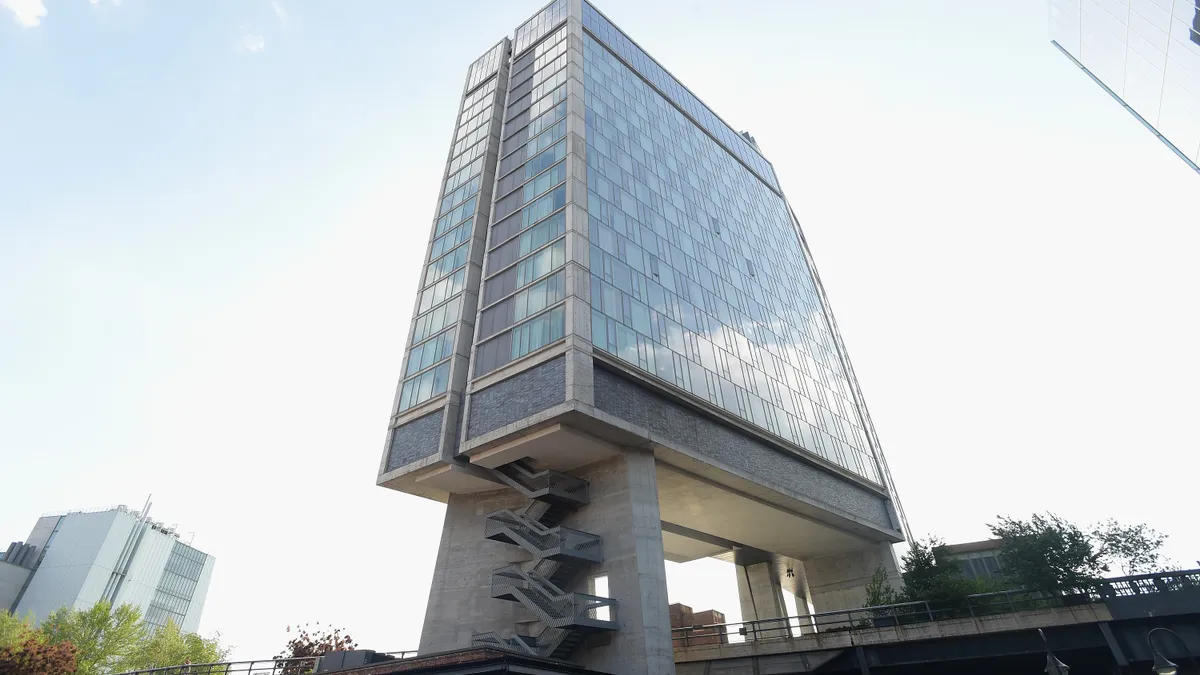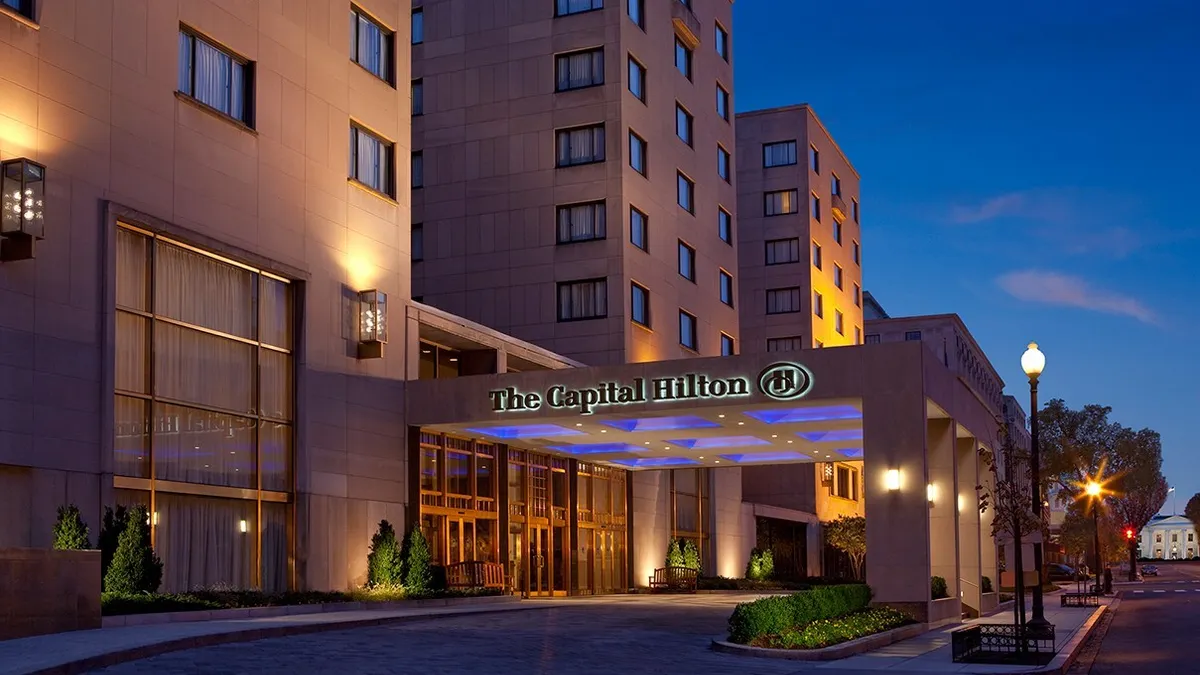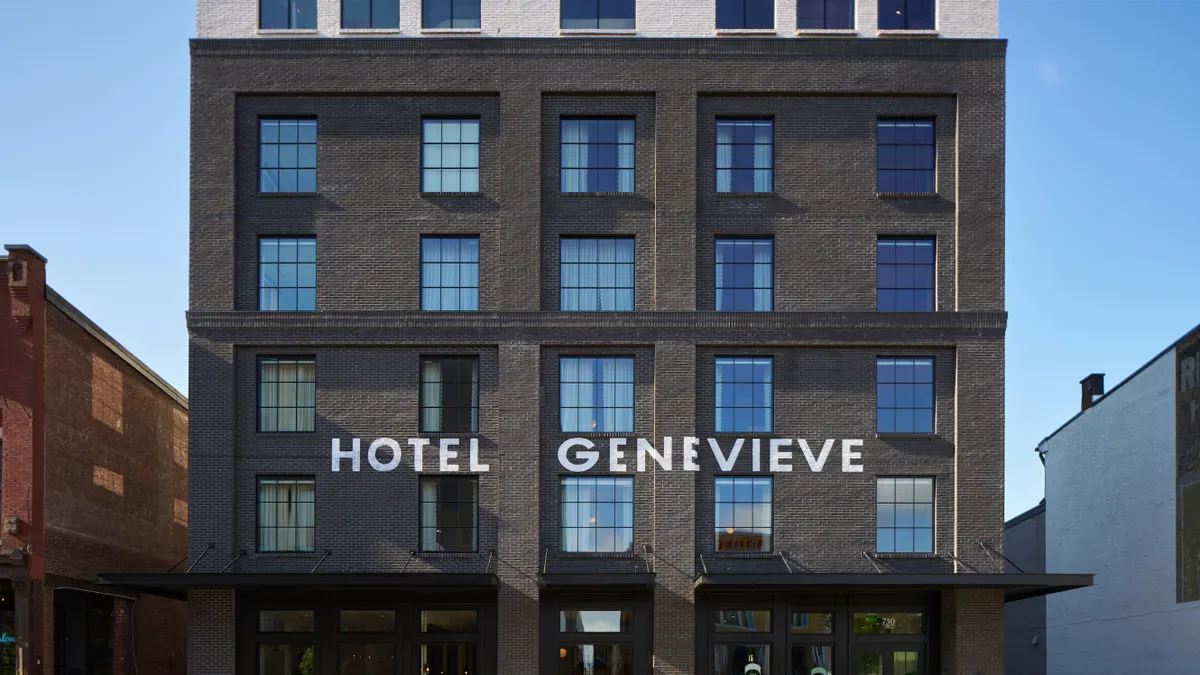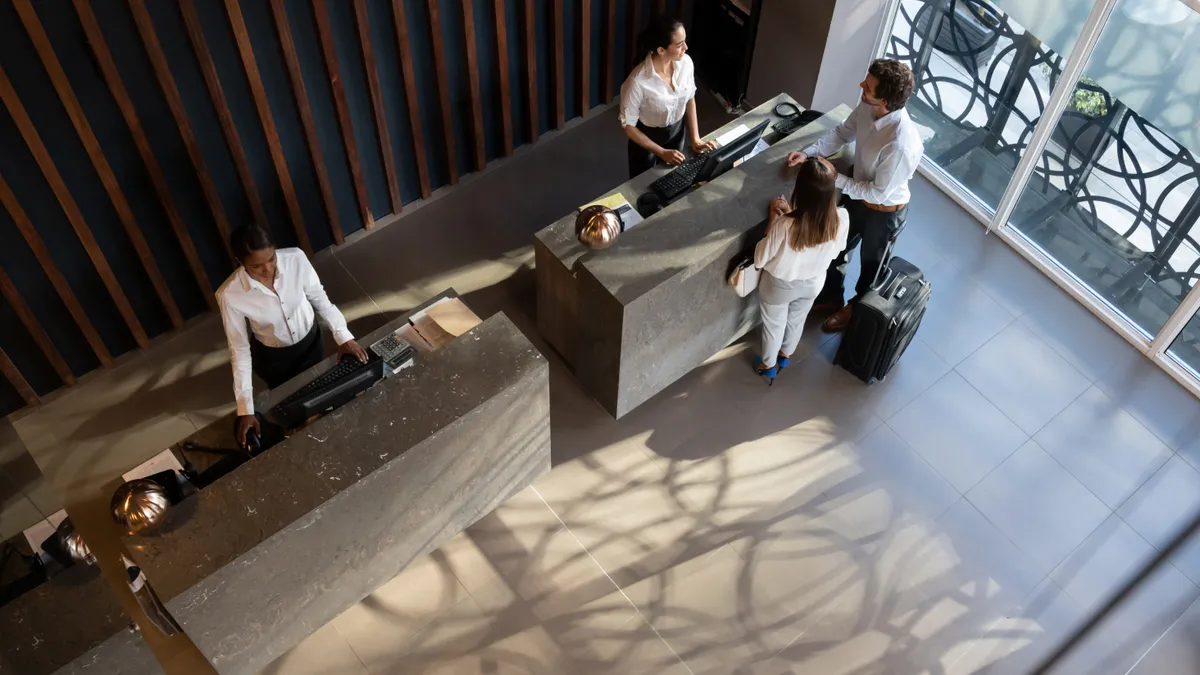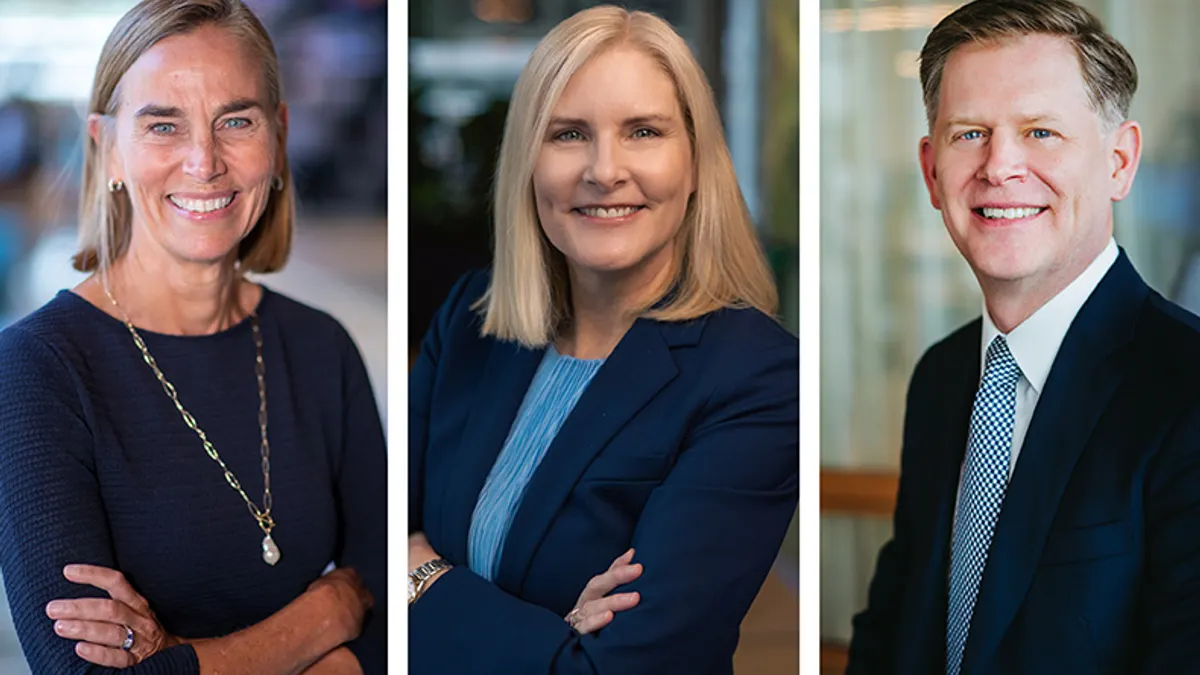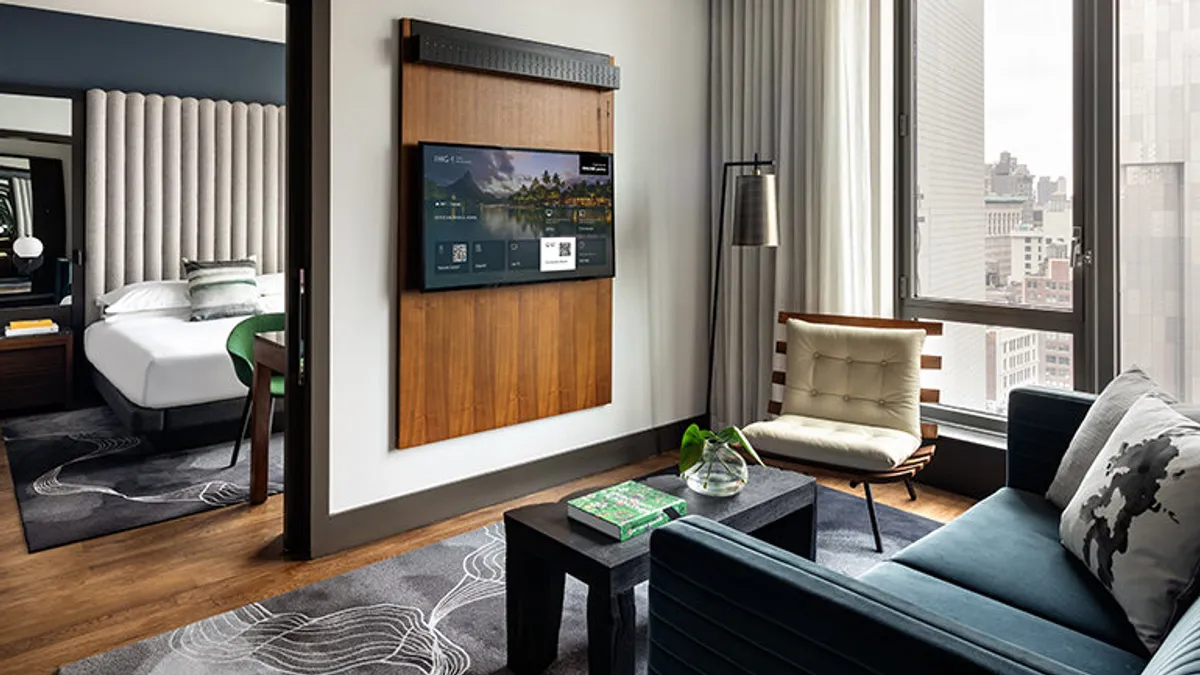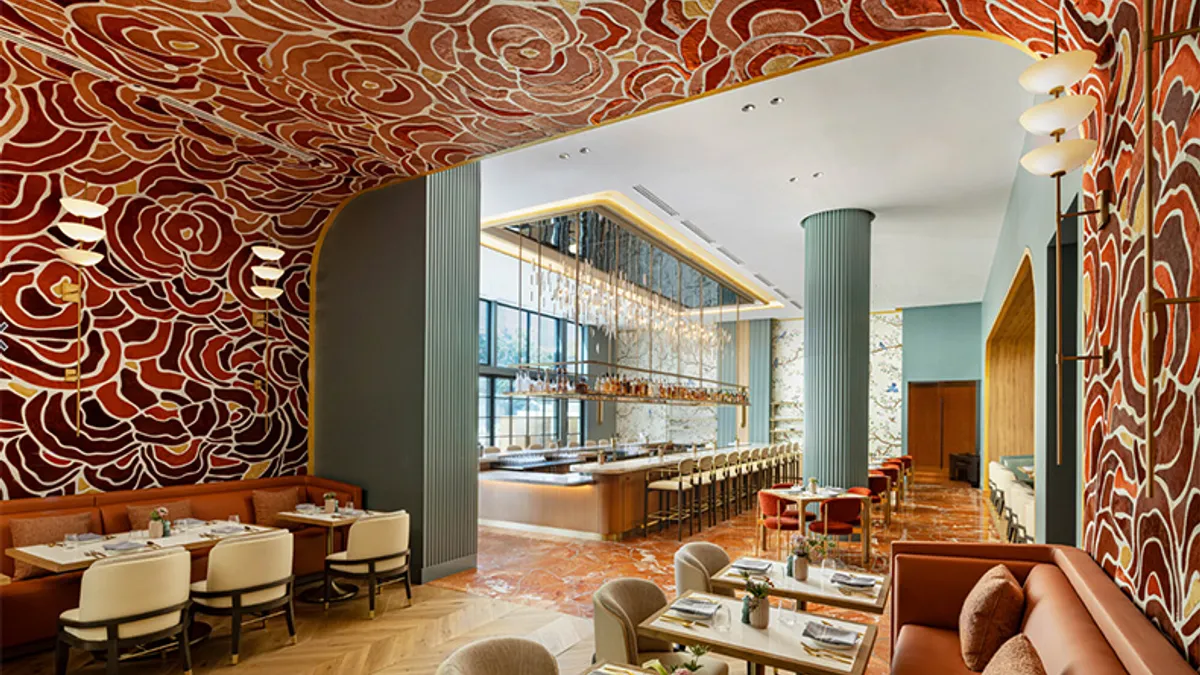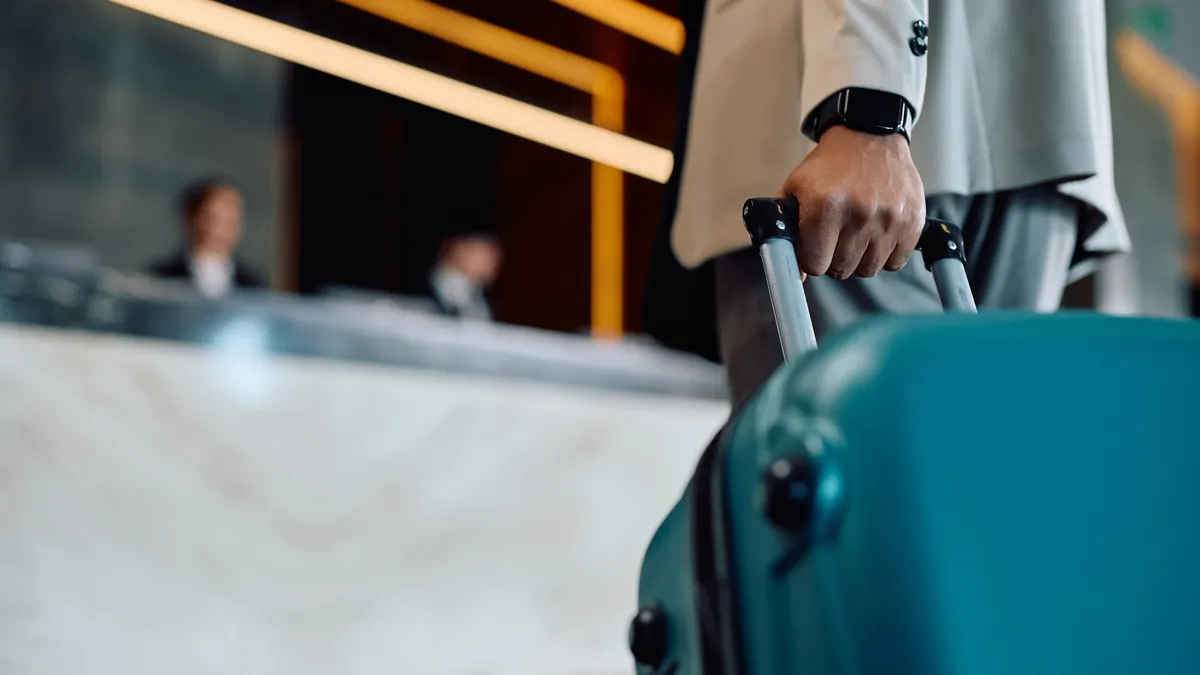Hyatt’s done it again. Tuesday after market close, the company announced it does, in fact, plan to acquire lifestyle hotel operator Standard International.
The tie-up brings Standard International’s lifestyle brands, including its namesake brand The Standard, and their 21 collective global properties under Hyatt’s roof. The buy — priced at up to $335 million — also adds some 30 hotels to Hyatt’s growing lifestyle pipeline.
The deal represents one of several lifestyle brand acquisitions Hyatt has inked in the last two years and repositions the hotel company among competitors like Hilton and IHG Hotels & Resorts, which are also expanding in the space.
With companies acquiring lifestyle brand after lifestyle brand, what once was a relatively low-stakes space has morphed into a fast-paced arena, riddled with flags that can sometimes be hard to differentiate. And it’s no longer all fun and games for hotel companies looking to stand out among the rest — it’s become war, according to one hospitality professional.
Twenty-plus-year hospitality industry leader Sid Narang, currently a managing principal at private investment firm Crescent Capital Ventures and former exec at SBE, Starwood and W Hotels, shared with Hotel Dive what’s driving the competition, what hotel companies must do to stand out in the “busy” space and how brand consolidation is evolving.
All's fair in lifestyle and war
With the Standard International buy, Hyatt made its latest strategic move in what Narang calls the “lifestyle wars.”
In the current environment, lifestyle brands are “aggressively” competing for customers and the share of their wallet, clients’ money and business, lenders’ capital, talent and other important resources, Narang said.
“Pretty much all the major hotel companies are now not only in the lifestyle space, but are aggressively trying to compete in this lifestyle space.”

Sid Narang
Managing Principal at private investment firm Crescent Capital Ventures
This fight for resources has been exasperated by a recent saturation of the lifestyle space — one that “didn’t exist” some 25 to 30 years ago, according to Narang.
“Pretty much all the major hotel companies are now not only in the lifestyle space, but are aggressively trying to compete in this lifestyle space,” he said, adding that after the pandemic, specifically, competition skyrocketed.
Brands, brands and more brands
Since the start of 2023, Hyatt alone has acquired several lifestyle brands, including Dream Hotel Group, Mr & Mrs Smith and German brand Me and All Hotels.
The Dream Hotel Group acquisition added 12 lifestyle hotels to Hyatt’s portfolio, with another 24 signed long-term management agreements for future hotels. The Mr & Mrs Smith deal, meanwhile, promised Hyatt a whopping 1,500 boutique and luxury properties — 700 of which the company added to its system in the second quarter of this year.
“The more franchise agreements you do, the greater Wall Street values you."

Sid Narang
Managing Principal at private investment firm Crescent Capital Ventures
The draw of rapid portfolio growth has led some of Hyatt’s main competitors, like Hilton, to seek out brand acquisitions as well.
Earlier this year, Hilton acquired two lifestyle brands: college-town focused brand Graduate Hotels and design-forward luxury lifestyle brand NoMad. Hilton also penned a partnership with Small Luxury Hotels of the World earlier this year, which until then had partnered with Hyatt.
Accor, meanwhile, merged with Ennismore in 2021, creating one “asset-light autonomous entity,” with 14 global lifestyle hotel properties.
Wyndham Hotels & Resorts partnered with hospitality group SBE in January to launch a “smart lifestyle” brand. And IHG has more recently worked to expand its existing lifestyle brands, including InterContinental and Kimpton Hotels, after acquiring luxury brand Six Senses Hotels Resorts Spas in 2019.
There are several reasons why hotel companies are expanding with brand acquisitions, Narang noted, one being to follow a “valuable” asset-light strategy.
The asset-light model
Companies are focusing on brand acquisitions in part because of the current interest rate environment.
Heightened rates have led to increased borrowing costs and, in turn, a higher cost-to-build, Narang explained. Because of this, fewer developers are building ground-up new-construction properties, and “if you’re a hotel company that relies on management contracts, that's a bad thing,” Narang said.
“When that stream of business, the new development, has dried up, then you pivot toward conversions,” he added. “Hotel companies are looking for brands that can be converted into, as part of an asset-light strategy. It makes sense for them to acquire brands that come with contracts, and they can then try to scale up, likely through conversions in the short-term.”
“In addition to all of this, Wall Street values hotel companies that are following an asset-light strategy,” Narang said.
“The more franchise agreements you do, the greater Wall Street values you,” he added. “That's why Hyatt goes ahead and sells a billion-dollar hotel that it owned and takes that cash and puts it into buying some brands like Dream and Standard, among others.”
Earlier this week, Hyatt offloaded the 1,641-room Hyatt Regency Orlando for $1.07 billion. Hyatt said in an Aug. 16 statement that the sale was part of its broader capital allocation strategy to sell its owned hotels and reinvest the proceeds in “asset-light platforms that accelerate growth.”
With the sale, Hyatt surpassed the $2 billion asset disposition goal that it set in 2021, the company said.
Changing traveler demand
So, hotel companies are acquiring more. But why are they targeting lifestyle brands in particular?
Narang said it’s because they are following changing traveler sentiment. Gen Z and millennial consumers are dominating travel and will continue to for years to come, and these travelers are “looking for authentic experiences,” he said. They also value design, uniqueness and the restaurants and bars at hotels, he added.
Lifestyle hotels tend to be more design-forward and feature food and beverage as an “integral part of the guest experience,” IHG SVP of Luxury and Lifestyle Brands Jane Mackies previously told Hotel Dive.
Hyatt’s acquisition of Standard International is directly linked to changing traveler demand, according to Daniel Langer, professor of luxury strategy at Pepperdine University and New York University.
“This acquisition is, in my point of view, about tapping into the rapidly evolving demands of the next generation of affluent travelers. Today's luxury travelers are driven by unique experiences, creative environments, and cultural relevance, all of which the Standard brand offers,” Langer told Hotel Dive.
“By acquiring these highly curated and creative properties in some of the most vibrant markets in the world, Hyatt is amplifying its cultural resonance and diversifying its luxury offering to stay relevant in a competitive market,” Langer added.
How brands can stand out
With so many brands competing in the lifestyle wars, “talent, culture and creativity will likely determine the winner,” Narang said in a Wednesday LinkedIn comment.
He later told Hotel Dive that brands must prioritize finding the right talent to lead operations of newly acquired lifestyle flags to ensure quality.
“[Lifestyle] is a different business than what these companies are used to. It requires a different flair. There are different types of decision making. There's a little more whimsical nature to how these things are operated or grown,” he said. “If [hotel companies] don't win the talent wars in lifestyle, they’re going to fall back, because those decisions made on the property, made in that business, made in that design, made in that sales will not be of the quality needed to drive revenues.”
Hyatt announced Tuesday that, in conjunction with its acquisition of Standard International, the company is forming a new dedicated lifestyle group to be headed by Standard’s executive chairman, Amar Lalvani. Hyatt said the group will assume “distinct leadership across key functions including experience creation, design, marketing, programming, public relations, restaurants, nightlife and entertainment.” While few details have been released about the group, it will presumably lead all of Hyatt’s lifestyle brands, including Andaz, Caption and Thompson Hotels.
Beyond hiring exceptional talent, lifestyle brands will also have to provide creative experience offerings distinct to their flag to attract guests, Narang noted, because experiences are driving hotel selection even more so than rates.
Hospitality groups will need to “avoid the sea of sameness that so many hotel brands are offering when it comes to service delivery,” Langer said. “Especially younger luxury clients look for inspiration, and inspiration comes from offering a highly curated and differentiated experience.”
"Today's luxury travelers are driven by unique experiences, creative environments, and cultural relevance, all of which the Standard brand offers."

Daniel Langer
Professor of luxury strategy at Pepperdine University and New York University
Experts told Hotel Dive at the beginning of the year that experience-based travel will be a trend that influences guest behavior through 2024 and beyond.
What’s on the horizon
With so many brands in the lifestyle space, even chains under the same hotel company will have to compete with one another, Narang noted.
Yariv Ben-Ari, chair of the real estate hospitality practice at New York law firm Herrick, previously noted to Hotel Dive that one challenge hotels face when acquiring another brand is evaluating how it will integrate into various markets and compete with others, or even their own assets within those markets.
As for Hyatt, one of the first things Lalvani will have to focus on as head of the lifestyle group, besides finding the right talent, Narang said, is how to “create the right flying formation” for all Hyatt’s lifestyle brands. If he oversees all of Hyatt’s brands, Lalvani will make sure there is a brand narrative for each flag and that they are distinctly positioned to offer unique amenities like food and beverage, Narang projects.
“[Lalvani] has to distinguish these enough for that developer, building community,” Narang said. “Otherwise, some of these brands will get lost in the shuffle, and there's plenty of brands that are lost in the shuffle.”
Industrywide, competition in the luxury and lifestyle hospitality space will “intensify” over the next several years, as more luxury travelers seek tailored, immersive experiences, Langer said.
When hotel companies are looking to acquire lifestyle brands, they will seek out those “with a strong identity, cultural relevance, and a proven ability to attract a loyal customer base,” according to Langer.
“The value proposition for such acquisitions lies in the brand’s ability to offer experiences that resonate deeply with a modern, affluent audience,” he said.
Narang said lifestyle brand acquisition will continue. But he noted that there's a dwindling supply of purchasable brands.
“There's not that much left. Off the top of my head, I can think of Ace Hotels or Virgin Hotels,” Narang said. “I suspect that they will be picked up. And I suspect that the next 12 months will be all about digesting these brands.”



